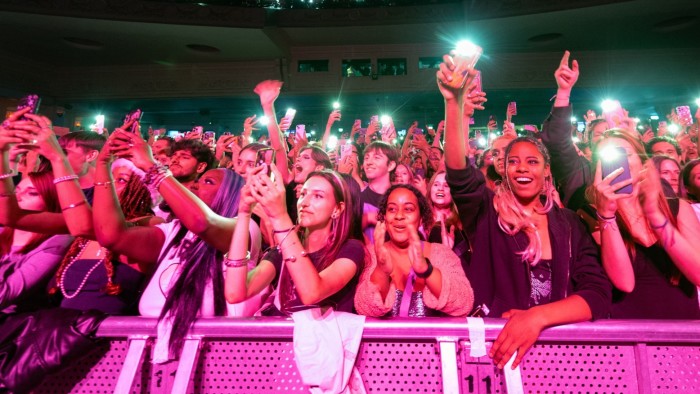Unlock the Editor’s Digest for free
Roula Khalaf, Editor of the FT, selects her favourite stories in this weekly newsletter.
StubHub International, the secondary ticketing group, has warned that it will leave the UK market if the Labour government imposes a stringent cap on the resale prices of tickets in the wake of the Oasis debacle.
Government officials are consulting on options that could limit ticket resales to the original price or up to a maximum increase of 30 per cent, with the aim of clamping down on professional touts who rip off music and sports fans going to live events.
Operators of secondary ticketing sites such as StubHub warn that this would have unintended consequences in driving away legitimate resellers and forcing consumers to black markets on social media.
Bob Kupbens, chief executive of StubHub International, which is the UK’s second-largest secondary ticket reseller after Viagogo, said that “even at 30 per cent, we feel very strongly that would make it very challenging for us to operate” in the UK.
He said StubHub would probably be forced to leave the UK, its largest market, given “the things that we do, the fraud protections, the things that we build on the platform, the customer service with a live person . . . it has a cost”.
StubHub says it has created a transparent and safe marketplace for fans to buy and sell tickets, with 24-hour customer service and a guarantee that provides a comparable replacement ticket or refund.
He added: “Our investors wouldn’t allow us to burn money if we didn’t think there was a viable business here. Under a policy landscape where a price cap was implemented, StubHub International would be unable to offer our . . . guarantee or sustain our levels of customer service. As such, we would be forced to cease our UK operations.”
StubHub International was spun out of Viagogo when it bought the US parent business four years ago, and operates a secondary ticketing marketplace in the UK, Spain, Germany and other parts of Europe. It is owned by Boston-based private equity group Digital Fuel Capital.
Kupbens argued that the policy would create an illegal black market for tickets. “It will have massive negative impacts for consumers. It’s much more likely on social media that [they] get scammed. It’s not like the demand is going to go away, it’s just going to move somewhere else, and that somewhere else is going to be black market [where] consumers aren’t protected.”
The government’s policy is designed to tackle ticket touts who often buy up large numbers of tickets and sell them at a highly inflated level. In a 2021 report, the UK’s competition regulator said typical mark-ups on tickets sold on the secondary market were more than 50 per cent.
The government consultation — which ended in April — also suggests limiting the number of tickets resellers can list to the maximum they can normally purchase. The value of tickets sold in 2019 through secondary ticket platforms was about £350mn, according to the regulator’s estimates.
A government spokesperson said that “the Culture Secretary has been clear that time’s up for ticket touts. That’s why we are committed to taking robust action against touts and introducing a fairer resale market”.




